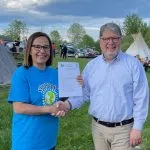
Most pretendians are little more than parasites
I was once told by someone they wished they were Indigenous. I responded saying “why would you want to be poor and depressed all the time?” He wasn’t at all interested in a reality so many Indigenous people face. It was too distant from his romanticized ideal. His infatuation would become a lie if he tried to fool people with claims of Indigenous blood. Fortunately, he did not. There are, however, people with less Indigenous blood than a mosquito who claim to be Indigenous. They are pretendians, those who adopt an Indigenous identity when it is advantageous to do so. They utilize their new found identity in order to advance their career, access scholarships and opportunities meant for Indigenous people. They are not so much lost in fantasy as they are deliberately and knowingly stealing from another people. They are parasites who need to be called out.
Hundreds of thousands of dollars have been diverted from funds set aside to support Indigenous artists. Michelle Latimer, filmmaker, and Joseph Boyden, writer, have both benefited from a skimpy claim to an Indigenous blood line later proven false. Carrie Bourassa, former director of the prestigious Scientific Indigenous Health Branch of the Canadian Institutes of Health Research, has at different times claimed to be Anishinabe, Métis or Tlinget. She is none of the above. Under considerable pressure she has resigned her position with the University of Saskatchewan. These are pretendians who, ironically, would have done well in their careers if only they were honest.
Sacheen Little Feather, made famous by her refusal to accept an academy award on behalf of Marlon Brando, was not a White Mountain Apache as claimed but an imposter with no Indigenous blood at all. Her real name was Maria Louise Cruz. She took on an Indigenous identity with the goal of advancing her acting career but the truth was exposed upon her death by her sister and others. Despite her fraudulent claim, she became an effective and highly regarded ally who was very much a part of the Indigenous community throughout the rest of her life.
Mary Ellen Turpel-Lafond’s claim to have an Indigenous bloodline is in doubt and problematic. She was a lawyer, judge and advocate for First Nations throughout a long, storied career. She has been awarded an honorary doctorate of law from eight different universities and is highly thought of by First Nations. CBC conducted thorough research, which found no evidence of her claim to First Nation ancestry. Her response was evasive leaving the very remote possibility she may indeed have Cree ancestors through the Norway House First Nation in Manitoba. She married into the Muskeg Lake First Nation, which promptly issued a statement of support as did the Union of British Columbian Indian Chiefs (UBCIC). It is much harder to condemn the pretendians who made significant contributions than those who didn’t. Increasing number of hiring and funding sources now demand proof of an Indigenous blood line. It’s about time.

